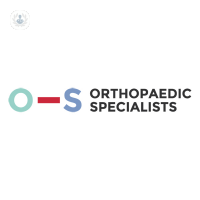Early rheumatoid arthritis
Dr Elena Nikiphorou - Rheumatology
Created on: 09-02-2020
Updated on: 09-19-2023
Edited by: Aoife Maguire
What is early rheumatoid arthritis?
Early rheumatoid arthritis is a condition that causes pain, swelling and stiffness in the body’s joints. It is a chronic condition causing inflammation of the joints but the severity of the symptoms can fluctuate over time.

What are the symptoms of early rheumatoid arthritis?
Early rheumatoid arthritis is characterised by swelling, tenderness and stiffness of the joints. Warmth and redness around the area of the joint can also be symptoms of the condition. Stiffness of joints in the morning, lasting longer than around thirty minutes, can also be a sign of early rheumatoid arthritis. Symptoms of early rheumatoid arthritis are not limited only to the body’s joints. They can also include:
- fatigue, caused by the body using energy to fight inflammation
- poor appetite
- weight loss
- dry eyes and mouth
- chest pain
- fever
Symptoms of early rheumatoid arthritis may appear suddenly or develop slowly over time. The severity of symptoms can also increase and lessen depending on lifestyle factors, such as exercise and diet.
What causes early rheumatoid arthritis?
Early rheumatoid arthritis is an autoimmune condition, where the body’s natural defence system can’t tell the difference between some types of cells. Therefore, the body mistakenly attacks tissue around the joints, causing inflammation which leads to pain and stiffness.
The exact cause of early rheumatoid arthritis is unknown but some possible risk factors have been determined as making someone more likely to develop the condition. Females are more likely to suffer from early rheumatoid arthritis, as are those who have a family history of the condition. Smoking and being overweight have also been identified as factors which may increase risk of developing early rheumatoid arthritis. However, anyone can develop the condition at any age, although the most typical age range of patients is between thirty and fifty years of age.
How is early rheumatoid arthritis diagnosed and treated?
Doctors typically use a combination of methods to diagnose early rheumatoid arthritis, as there is no one test to identify its presence. Usually, the doctor will conduct a physical examination of your joints and will ask about your symptoms and general mobility. They may also use blood tests to look for indicators of early rheumatoid arthritis or scans, such as x-rays or an MRI, to assess the condition of your joints.
Although there is no cure for early rheumatoid arthritis, studies show that early detection, medication and various forms of therapy can significantly limit the progress of the condition and help to manage the symptoms, enabling patients to continue living an active life.
Medication your doctor prescribes you may include steroid treatments, to reduce stiffness and inflammation, medication designed to stop the body from attacking its own tissue or pain killers to manage your symptoms. Physiotherapy, occupational therapy and podiatry may also help patients of early rheumatoid arthritis to manage stiffness and pain in their joints. If deemed necessary, there are also some surgical treatment options to consider such as arthroscopy, a minimally invasive technique, carpal tunnel surgery or even joint replacement surgery.
What type of doctor treats early rheumatoid arthritis?
A rheumatologist treats early rheumatoid arthritis.




